-
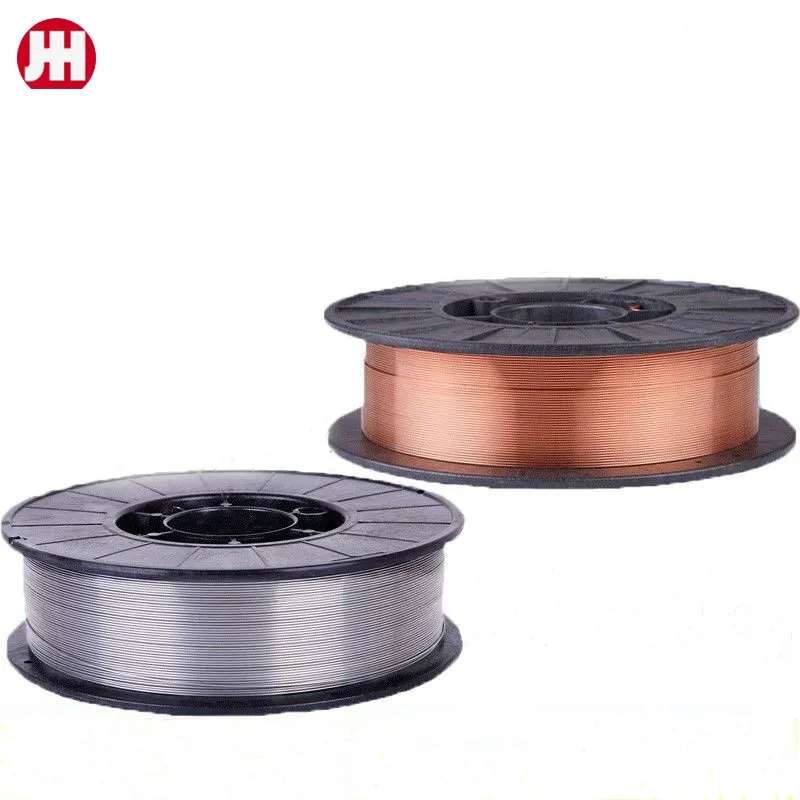 Flux Cored Arc Welding (FCAW) is an arc welding technique that involves creating an arc between a continuous tubular filler metal electrode and the weld pool.Flux-cored arc welding (FCAW or FCA) is a type of semi-automatic or automatic arc welding. A continuously-fed consumable tubular electrode carrying a flux and a constant-voltage or, less typically, a constant-current welding power source are required for FCAW.Ары қарай оқу
Flux Cored Arc Welding (FCAW) is an arc welding technique that involves creating an arc between a continuous tubular filler metal electrode and the weld pool.Flux-cored arc welding (FCAW or FCA) is a type of semi-automatic or automatic arc welding. A continuously-fed consumable tubular electrode carrying a flux and a constant-voltage or, less typically, a constant-current welding power source are required for FCAW.Ары қарай оқу -
 There are many types of wire, but what is the advantage of flux cored wire? We’ve explained it all in our article.Flux cored wire is resistant to corrosion. It will not corrode even in harsh environments, like salt water or acid rain. This makes it perfect for use in applications where water or other corrosive substances are present, like bridges or pipelines.Ары қарай оқу
There are many types of wire, but what is the advantage of flux cored wire? We’ve explained it all in our article.Flux cored wire is resistant to corrosion. It will not corrode even in harsh environments, like salt water or acid rain. This makes it perfect for use in applications where water or other corrosive substances are present, like bridges or pipelines.Ары қарай оқу -
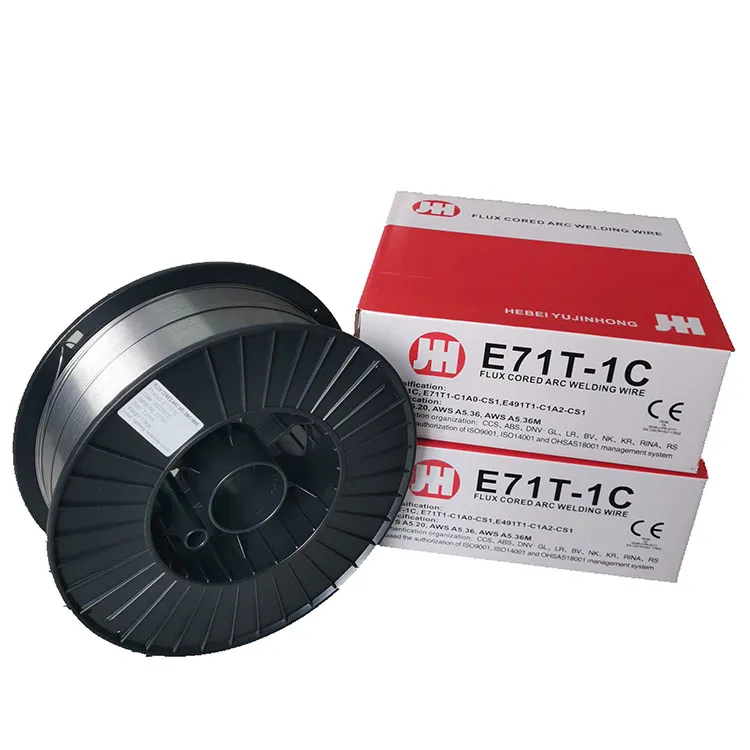 When it comes to welding, choosing the right wire is crucial for achieving the desired results. Two popular options are flux-cored wire and solid MIG wire. Both have their own unique characteristics and are used for different purposes.Flux-cored wire is known for its ability to weld in windy conditions and in areas without a clean environment. On the other hand, solid MIG wire is preferred for its smooth and consistent welds.But which one is better for your project? This article will explore the differences between flux-cored wire and solid MIG wire, including their pros and cons, so that you can make an informed decision.Ары қарай оқу
When it comes to welding, choosing the right wire is crucial for achieving the desired results. Two popular options are flux-cored wire and solid MIG wire. Both have their own unique characteristics and are used for different purposes.Flux-cored wire is known for its ability to weld in windy conditions and in areas without a clean environment. On the other hand, solid MIG wire is preferred for its smooth and consistent welds.But which one is better for your project? This article will explore the differences between flux-cored wire and solid MIG wire, including their pros and cons, so that you can make an informed decision.Ары қарай оқу -
 MIG (also called Gas Metal Arc Welding, or GMAW) and stick (Shielded Metal Arc Welding, or SMAW) welding are two of the most commonly used arc welding processes, along with TIG. And although they share some similarities, one can produce much better results than the other for certain applications.Ары қарай оқу
MIG (also called Gas Metal Arc Welding, or GMAW) and stick (Shielded Metal Arc Welding, or SMAW) welding are two of the most commonly used arc welding processes, along with TIG. And although they share some similarities, one can produce much better results than the other for certain applications.Ары қарай оқу -
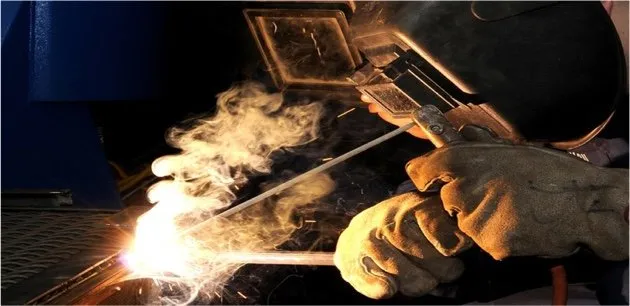 Its official name is Shielded Metal Arc Welding (SMAW), but it’s usually called stick welding. This type of welding employs an electrode (stick) and can be used for welding almost all the ferrous metals and other metal types, too. It is among the most widely-used welding processes.Ары қарай оқу
Its official name is Shielded Metal Arc Welding (SMAW), but it’s usually called stick welding. This type of welding employs an electrode (stick) and can be used for welding almost all the ferrous metals and other metal types, too. It is among the most widely-used welding processes.Ары қарай оқу -
 Stick welders are considered old-fashioned today. But that doesn't mean they are out. Even though MIG welders are becoming a choice tool for fabrication needs nowadays, there are certain things a stick welder continues to be better at.Ары қарай оқу
Stick welders are considered old-fashioned today. But that doesn't mean they are out. Even though MIG welders are becoming a choice tool for fabrication needs nowadays, there are certain things a stick welder continues to be better at.Ары қарай оқу -
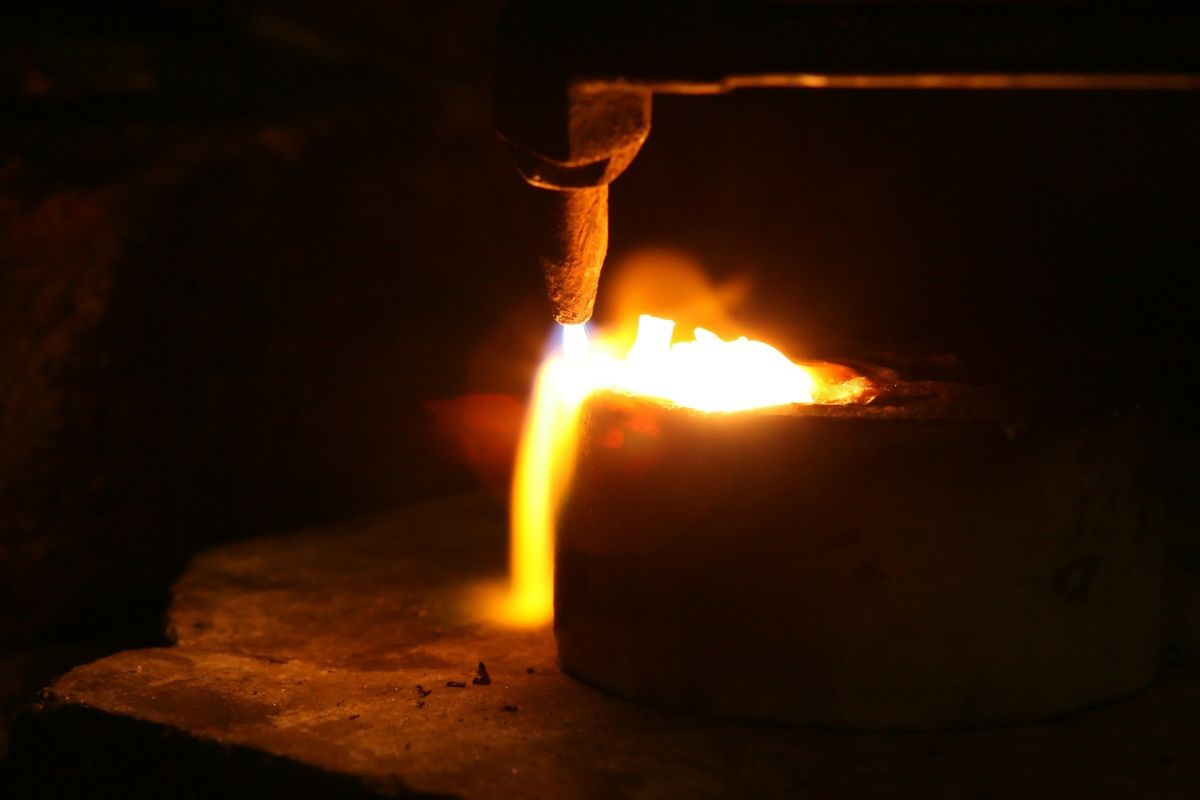 Welding is a process used in fabrication for thousands of years. Different types of welding help fabricators forge swords, build ships, build furniture, and more. There are many kinds of welding to choose from, each with specific practical applications. When you start, you will find that some welding types are easier to learn, while other processes can take years to master.Ары қарай оқу
Welding is a process used in fabrication for thousands of years. Different types of welding help fabricators forge swords, build ships, build furniture, and more. There are many kinds of welding to choose from, each with specific practical applications. When you start, you will find that some welding types are easier to learn, while other processes can take years to master.Ары қарай оқу -
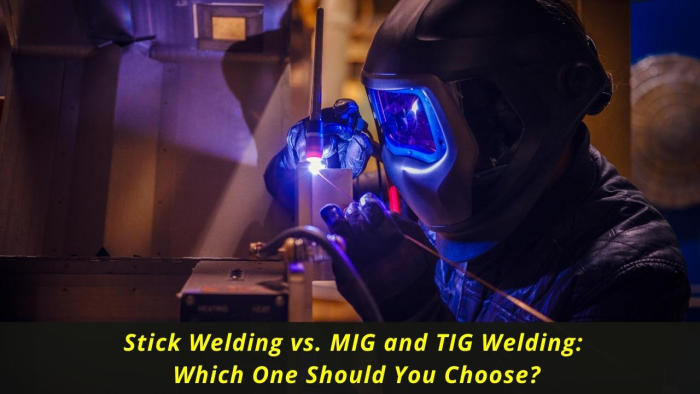 “Welding” is any method of joining two materials together. While welding often refers to joining metal pieces, welding can apply to other materials, including plastic and wood. Because of this variety, numerous kinds of processes are used to weld materials together. Even something as simple as glue can be considered a welding method.Ары қарай оқу
“Welding” is any method of joining two materials together. While welding often refers to joining metal pieces, welding can apply to other materials, including plastic and wood. Because of this variety, numerous kinds of processes are used to weld materials together. Even something as simple as glue can be considered a welding method.Ары қарай оқу -
 Oscar Kjellberg invented the world’s first coated welding electrode in 1904 by dipping a bare wire into a mixture of carbonates (including wood pulp, or cellulose) and silicates to act as a binder. While advances in metallurgy, electrode coating composition, and manufacturing techniques continue to this day, the fundamental principles of shielded metal arc welding (SMAW), also commonly known as stick welding, remain.Ары қарай оқу
Oscar Kjellberg invented the world’s first coated welding electrode in 1904 by dipping a bare wire into a mixture of carbonates (including wood pulp, or cellulose) and silicates to act as a binder. While advances in metallurgy, electrode coating composition, and manufacturing techniques continue to this day, the fundamental principles of shielded metal arc welding (SMAW), also commonly known as stick welding, remain.Ары қарай оқу -
 Stick welding is a process by which you can weld two pieces of metal together. It’s sometimes called “stick” or “rod-in-tube” welding machines. The technique has been around for a long time, and it’s still used in the industry.Ары қарай оқу
Stick welding is a process by which you can weld two pieces of metal together. It’s sometimes called “stick” or “rod-in-tube” welding machines. The technique has been around for a long time, and it’s still used in the industry.Ары қарай оқу -
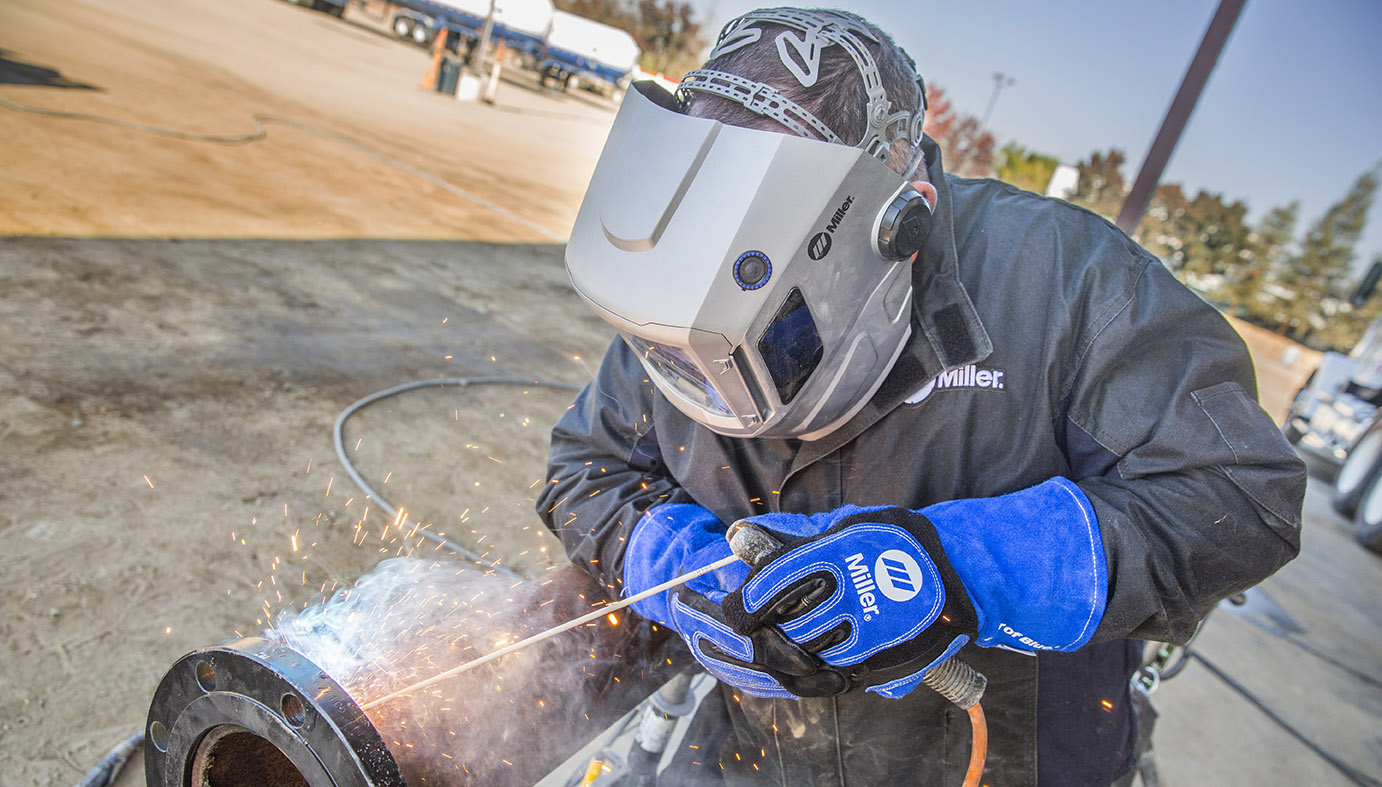 The construction industry is extremely diverse, and some of the trades don’t feature welding as a core competency in their day-to-day work. However, equipment breaks, and it’s likely welding will be needed get it back up and running. Or maybe you have some downtime and want to reinforce areas that you know are prone to damage.Ары қарай оқу
The construction industry is extremely diverse, and some of the trades don’t feature welding as a core competency in their day-to-day work. However, equipment breaks, and it’s likely welding will be needed get it back up and running. Or maybe you have some downtime and want to reinforce areas that you know are prone to damage.Ары қарай оқу -
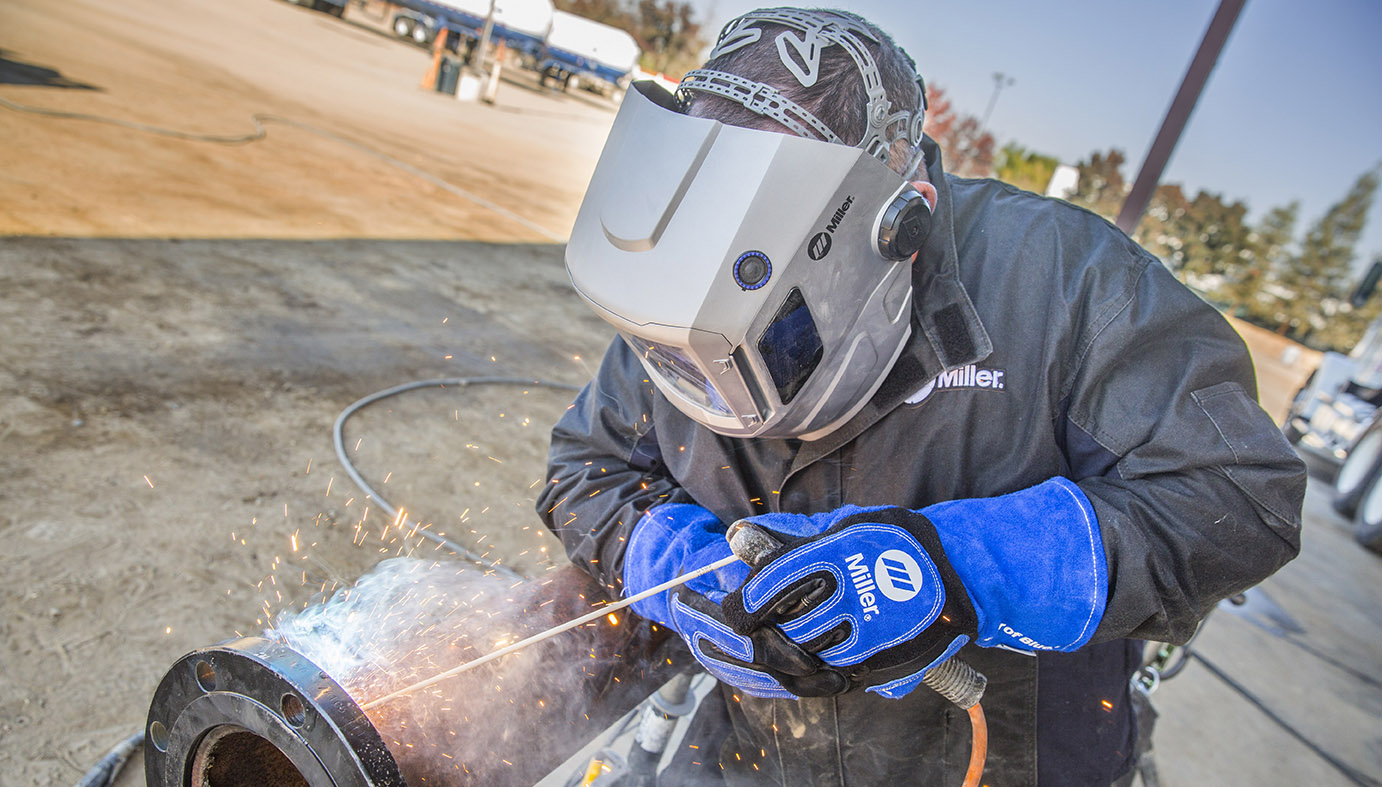 Whether you are a DIYer or a professional welder, one thing is certain: Stick welding requires a lot of skill. It also requires some know-how about stick electrodes (also called welding rods). Because variables such as storage techniques, electrode diameter and flux composition all contribute to stick rod selection and performance, arming yourself with some basic knowledge can help you minimize confusion and better ensure stick welding success.Ары қарай оқу
Whether you are a DIYer or a professional welder, one thing is certain: Stick welding requires a lot of skill. It also requires some know-how about stick electrodes (also called welding rods). Because variables such as storage techniques, electrode diameter and flux composition all contribute to stick rod selection and performance, arming yourself with some basic knowledge can help you minimize confusion and better ensure stick welding success.Ары қарай оқу


